Care instructions
Take care of your bathroom and your bathroom will take care of you! Keeping your bathroom clean is not just about hygiene.
With proper care, all surfaces and components will perform better and last longer. Simply follow this advice:
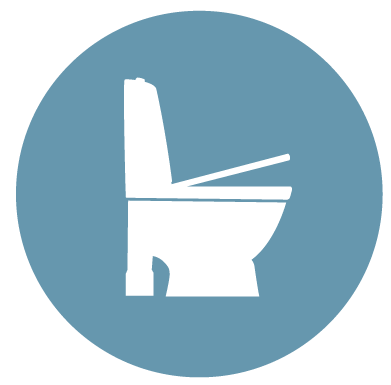
Bathroom sanitery porcelain - Toilet & Bathroom sink
Dense sintered sanitary porcelain is one of the easiest materials to maintain. And if you choose porcelain with a Ceramicplus surface treatment, then it is even easier to keep clean.
Clean the porcelain often to prevent dirt and limescale deposits forming. If your regular detergent does not give the desired result, try citric acid or tartaric acid. Dilute according to the manufacturer's instructions and apply to the WC bowl. Wipe/rub the damp surface dry and rinse thoroughly. Remove limescale deposits with household vinegar. Dilute according to the manufacturer's instructions. Heating the vinegar will provide an even better result.
Never use abrasive detergents. They damage the glaze over time. And never use strongly alkaline, lye-based blockage removers that can damage the porcelain surface and harm the environment.
Do not spray cleaning agent directly onto the flush button or the seat, as this risks damaging the components inside. Wipe clean with a soft cloth.
For toilet bowls stored in unheated areas, the cistern should be emptied and wiped dry. Pour about 4 dl (14 fl. oz.) of antifreeze in the water trap. Use an environmentally friendly product.

Sanitery porcelain with Ceramicplus
Ceramicplus is a treatment that makes surfaces even easier to keep clean. The treatment closes the pores in the surface of the porcelain so that water forms into drops and washes any dirt and limescale down the waste pipe.
Keeping things fresh takes no more than a daily clean with a soft cloth/brush and perhaps a little mild detergent. Use a vinegar-based cleaner if you need something stronger and more effective against limescale. Never use abrasive or talk-based products (pH greater than 10). Otherwise, follow the same care rules as for standard sanitary porcelain (see above).
Environmentally hazardous substances such as solvents, strong chemicals or poisons must not be used on or flushed down the toilet bowl. They harm the environment and can also damage the Ceramicplus surface treatment. Your warranty is void if such substances have been used on/flushed down the toilet bowl.
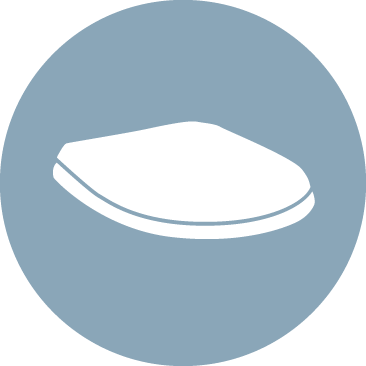
Toilet seats
Use a soap solution or a mild detergent. Never use chlorine-based or abrasive detergents. Dry with a clean cloth afterwards. Wipe off any limescale or urine stains under the seat to stop them getting a foothold. If a stain remains, rub it repeatedly with a soft cloth dipped in hot soapy water.
Do not spray cleaning agent directly onto the seat, as this risks damaging the components inside. Wipe clean with a soft cloth.
Our soft and hard seats are coloured throughout the material and should not fade with correct use. However, the underside of a hard seat can suffer if not cleaned regularly. It can usually be restored with a light polish using a non-abrasive car polish and a soft cloth.
Make a habit of leaving the lid and seat up after cleaning the toilet bowl so that any remaining detergent and water can dry/evaporate.
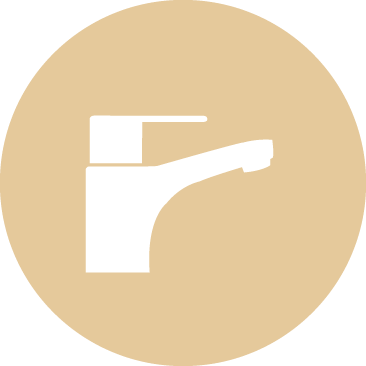
Faucets
Make a habit of regularly wiping your mixers, preferably directly after use. This way you will avoid the need to use aggressive products that are also bad for the environment. Use a soft cloth to prevent limescale and unwanted marks.
Chromed and anodised surfaces should be cleaned regularly using a liquid detergent with a neutral pH or else soap solution. Dry off with a soft, dry cloth. Should limescale deposits form despite this, use regular household vinegar and rinse thoroughly with water.
All types of abrasive products, such as steel wool, coarse sponges, scouring powder and the like, leave a dull and scratched surface.
Never use acid, chlorine or alcohol-based cleaners as they can leave unwanted marks and damage surfaces. If you use any such cleaner near the mixer, be sure to protect it from splashes.
Avoid spraying detergent directly on the mixer, as there is a risk of damaging internal components. Use a cloth instead, which is both gentle and more effective.
Especially avoid cleaning products containing the following substances: hydrochloric acid, phosphoric acid, acetic acid and chlorine. Aluminium chloride, found in antiperspirant, can also cause discolouration.
Too hot water and high pressure rinsing can cause damage.
If there is a risk of freezing, such as in an unheated house or holiday home, you must empty the mixer of all water prior to the winter season. Or else dismantle it and store it in a heated area. If the mixer is of the single-lever type and is emptied of water but left in place, you should remove the regulator cartridge/ceramic cartridge. If it is a thermostat mixer, you must remove the thermostat cartridge/regulator cartridge and leave the mixer in the on position. There is a risk of freezing even when transporting a water-filled mixer in sub-zero temperatures.
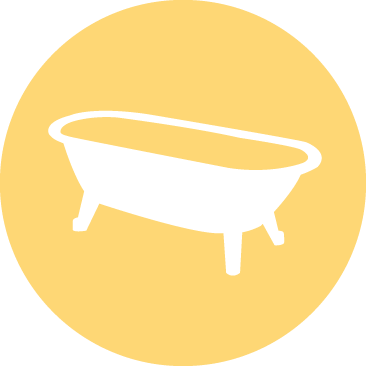
Bathtubs
Clean after each use to prevent the build up of dirt and limescale deposits. Use a mild and gentle detergent, such as washing up liquid, and apply with a soft brush or sponge. Use the shower head to rinse. Remove any discolouration with citric acid or tartaric acid. Apply a little to a damp cloth and rub the spot. Rinse thoroughly. Limescale deposits are most easily and safely removed with household vinegar. Apply a little vinegar to a damp cloth and rub the spot, rinsing thoroughly afterwards.
If you want to wash or soak clothes, you should use a mild - preferably liquid - handwashing detergent meant for delicate items. Powerful washing and pre-soak detergents can damage the bathtub enamel.
Never use abrasive detergents, steel wool, abrasive sponges, cleaners.

Bathtub with glazeplus
Our bathtubs are available with an extra surface treatment called Glazeplus. This is a crystal-clear polymer film that protects the surface of your bathtub against dirt and limescale deposits – which facilitates cleaning and reduces the amount of detergent you need to use.
Products treated with Glazeplus treatment must be protected during decorating or renovation work as the chemicals used by builders can damage the glaze. Inform the concerned workers of this. Glazeplus surfaces should be cleaned using a soft cloth – but NOT a microfibre cloth – and a mild detergent.

Whirlpools / acrylic bathtubs
Clean your bathtub every time you use it to prevent the build-up of dirt and lime scale. Use a mild, gentle cleaning agent such as washing-up liquid and a soft cloth or sponge. Never use scouring agents, steel wool or scouring pads.
For whirlpool tubs, you also need to clean the tub hoses regularly. How often depends on how many baths you take, but for private use we recommend cleaning the hoses at least once every three months.
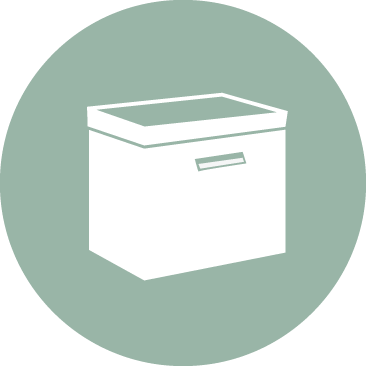
Bathroom furniture
Gustavsberg bathroom furniture is water-resistant, but should not be rinsed down with water. Avoid placing the furniture right next to the bathtub or shower without a proper shower screen. Water should not be left on any surfaces, but wiped up as soon as possible. Clean with a mild detergent and a soft cloth.

Showers
Shower walls are constantly subjected to water, soap, oils, shampoo and limescale. For this reason, all Gustavsberg showers are fitted with Clear Glass - a protective exterior layer that facilitates cleaning and helps reduce the amount of detergent you need to use.
Avoid limescale deposits on the inside of the glass walls by drying with a rubber scraper or a cloth after each use. Use a mild detergent for more thorough cleaning. Special shower cleaners, regular window cleaning fluid or washing up liquid are all fine. Gustavsberg's own cleaner, item no. GB2510140, is particularly suitable for glass, tiles and mirrors.
Never use acetone, acid or alcohol-based cleaners or abrasive cleaners.